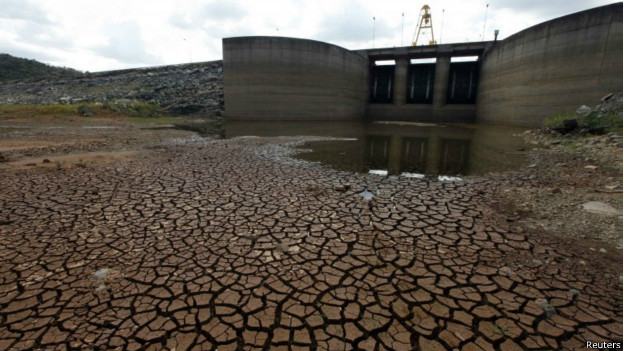The relationship between the water crisis and climate change

The relationship between the water crisis and climate change
The water crisis is one of the most serious problems affecting the world today, and climate change plays a crucial role in this scenario.
The relationship between these two problems is increasingly evident and worrying, since climate change directly affects the availability and quality of water in various regions of the planet.
Climate change is a phenomenon that occurs due to the increase in greenhouse gas concentration in the atmosphere, resulting from human activity, such as burning fossil fuels and deforestation. This increase in greenhouse gases has caused an increase in global temperature and a series of changes in climate, including altered precipitation patterns, prolonged droughts, and increased number and intensity of extreme weather events.
The water crisis, in turn, can further exacerbate climate change, as the lack of water can lead to increased use of thermal energy to generate electricity, which further increases greenhouse gas emissions. In addition, water scarcity can lead to deforestation and ecosystem degradation, which can reduce the atmosphere’s carbon absorption capacity.
Climate change affects the quantity and distribution of water worldwide. With altered precipitation patterns, water availability is affected, with areas that were once humid and rainy now facing prolonged droughts and areas that were once arid and dry now facing floods and storms.
Moreover, the increase in global temperature has led to an increase in evaporation, resulting in a reduction in the amount of water available for human and agricultural use. This reduction in water availability is exacerbated by the growing demand for water, driven by population growth and economic expansion.
The water crisis has significant impacts on the economy, public health, and the environment. The lack of clean water can lead to outbreaks of waterborne diseases, and water scarcity for irrigation can harm agricultural production, leading to higher food prices and food insecurity. In addition, the lack of water can affect energy generation, navigation, and industry.
To combat the water crisis and climate change, measures are needed to promote the reduction of greenhouse gas emissions, such as promoting clean and renewable energy, encouraging public transportation and cycling, and reducing meat consumption. Additionally, it is essential to promote sustainable water resource management, including the protection of aquatic ecosystems, the reduction of water waste, and the promotion of the recovery of degraded areas.
Furthermore, it is important to implement adaptation measures to deal with water scarcity, such as improvements in water management, increased water efficiency, and investments in technologies that allow water reuse.
In conclusion, the water crisis and climate change are intrinsically related and need to be addressed together. Concrete actions are necessary to reduce greenhouse gas emissions and increase resilience to climate change, to ensure water availability for future generations and preserve the health of the planet.
Henrique Cortez, editor of the EcoDebate, ISSN 2446-9394
[ Se você gostou desse artigo, deixe um comentário. Além disso, compartilhe esse post em suas redes sociais, assim você ajuda a socializar a informação socioambiental ]
in EcoDebate, ISSN 2446-9394
A manutenção da revista eletrônica EcoDebate é possível graças ao apoio técnico e hospedagem da Porto Fácil.
[CC BY-NC-SA 3.0][ O conteúdo da EcoDebate pode ser copiado, reproduzido e/ou distribuído, desde que seja dado crédito ao autor, à EcoDebate com link e, se for o caso, à fonte primária da informação ]